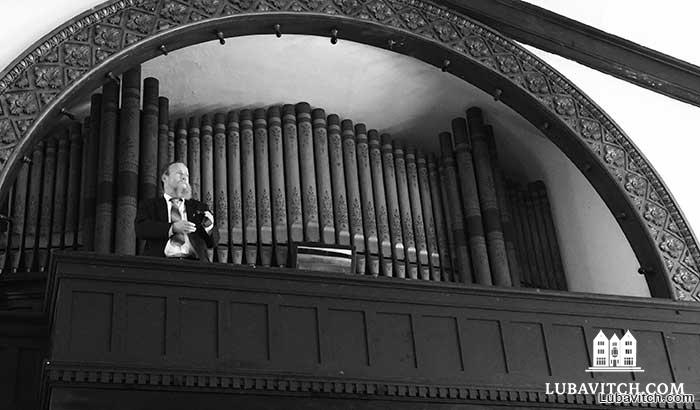Rabbi Yisroel Baruch Sufrin flashes a wide smile as he greets students arriving to school in the morning. He calls each one by name, helps the little ones out of the car, adjusts this one’s backpack, that one’s sweater, and notices small details that would take some by surprise.
The principal of Harkham Hillel Hebrew Academy in Beverly Hills, California, Sufrin was one of three recipients selected for the prestigious Covenant Award at an event in Washington, DC, last week. A program of the Crown Family Philanthropies, the foundation honors outstanding Jewish educators and supports creative approaches to education.
According to the Covenant Foundation, for the past 11 years, Rabbi Sufrin has injected “a powerful and expansive vision of Jewish education into the school, and in the process has transformed it, empowered students and teachers, and strengthened Jewish community nearby and beyond.”
With 580 students at Harkham, Rabbi Sufrin focuses on the challenge of individualized education based on Proverbs 22:6, “Educate the child according to his or her way.”
“It’s not just a euphemism or a cliché. We really do believe that we should educate each child accordingly, to teach them to reach their potential by giving them the tools so they could become successful,” Sufrin said in an interview with lubavitch.com.
The children, he insists, are at the center of the educational process. And central to his educational philosophy is that they be imbued with a sense of purpose and mission, giving them opportunities to elevate their environment and make society a holy place.
 An alumnus of Lubavitch House School in London, UK, and Chabad schools in Israel and the United States where Sufrin he received his rabbinical ordination, he credits much of his philosophy and inspiration to the teachings of the Lubavitcher Rebbe, Rabbi Menachem Mendel Schneerson, of righteous memory.
An alumnus of Lubavitch House School in London, UK, and Chabad schools in Israel and the United States where Sufrin he received his rabbinical ordination, he credits much of his philosophy and inspiration to the teachings of the Lubavitcher Rebbe, Rabbi Menachem Mendel Schneerson, of righteous memory.
Sufrin also benefited growing up in a family dedicated to education. His parents, the late Rabbi Aron Dov Sufrin, and his wife Henny, were the longtime principals of the flagship Chabad school in the UK,
“As part of a family tree that boasts generations of educators, including my parents and my children, I thank my parents for showing me the unending value in this field of education, and for allowing me to develop my passion to see children as legacy builders,” he said.
When he first entered the field of education, the Los Angeles principal would spend many hours talking to his father about education. “My father, of blessed memory, had a lot of dialogue with the Rebbe on issues in education, and he used to share it with me.” Sufrin carries those conversations with him into all of his educational activities and the attitudes he has brought to the school.
Infused with Divine
 “I think the school is a divine dwelling place for G-d and everything of my life is a holy task. So picking up a piece of paper is a holy task, because they need to have a learning space that is clean. Speaking to a donor is a holy task, [so too] working with parents and lay leadership.” He explains that all of these fit into one mission: to create opportunities for children that will empower them to transform their environment into a dwelling place for G-d here in our world.
“I think the school is a divine dwelling place for G-d and everything of my life is a holy task. So picking up a piece of paper is a holy task, because they need to have a learning space that is clean. Speaking to a donor is a holy task, [so too] working with parents and lay leadership.” He explains that all of these fit into one mission: to create opportunities for children that will empower them to transform their environment into a dwelling place for G-d here in our world.
Sufrin likes to repeat an anecdote his father shared with him. Shortly after he became involved in education at Lubavitch House, his father, coming from a background in business, asked the Rebbe, “What should be the first thing that I should teach the kids?”
The Rebbe responded, “You live in England, the first thing you should teach the kids is how to use a fork and knife.”
For the younger Sufrin it is clear that to be successful as an educator, one must teach the student to be a “mentsch.” In a society that places a high value on table manners, proper etiquette is a priority.
The award winning principal draws lessons from Pirkei Avot that views good conduct as a prerequisite to Torah. Society, he explains, ought to mirror the conduct we are trying to teach our children. “We need a society to live that way, then the children would also live that way.”

Be the first to write a comment.